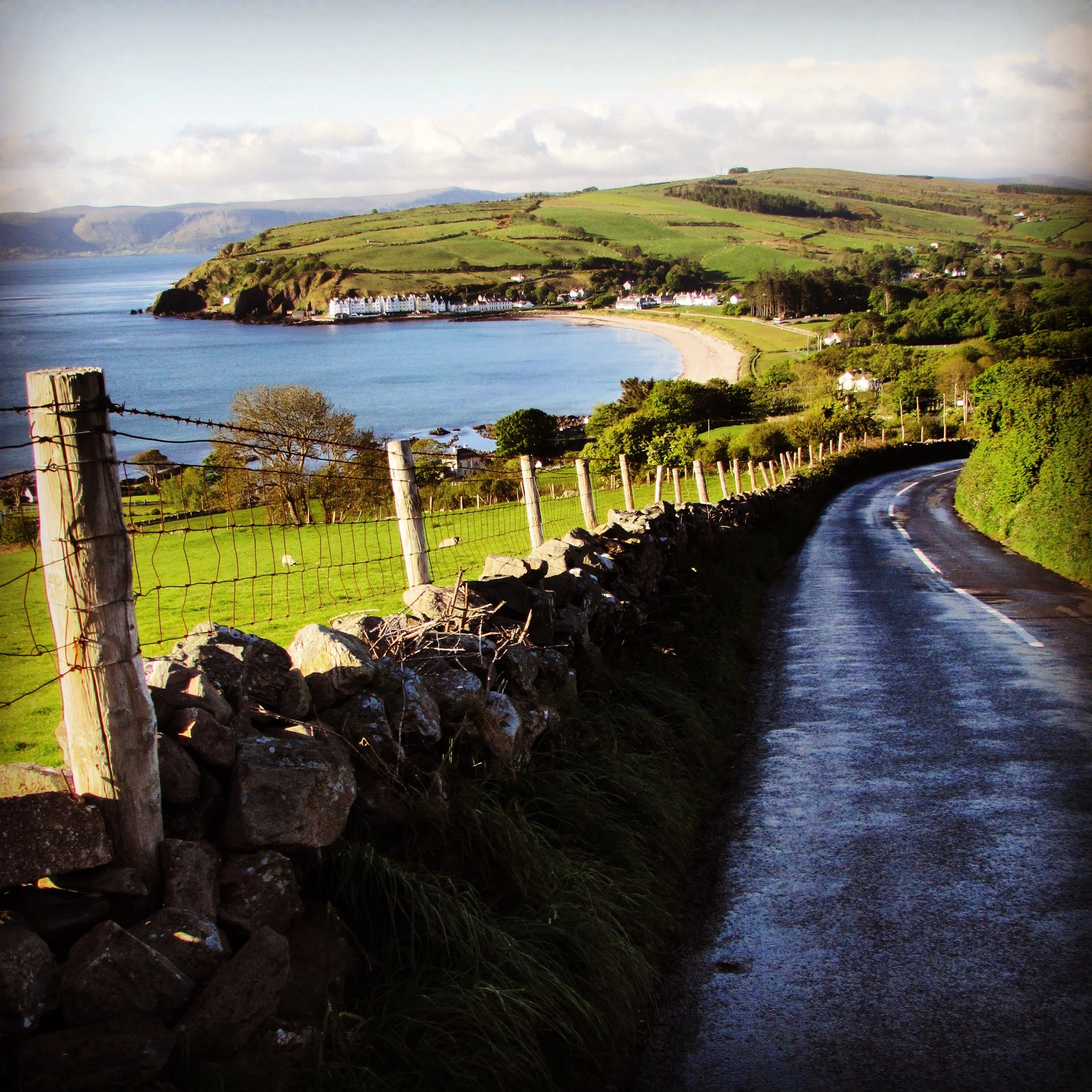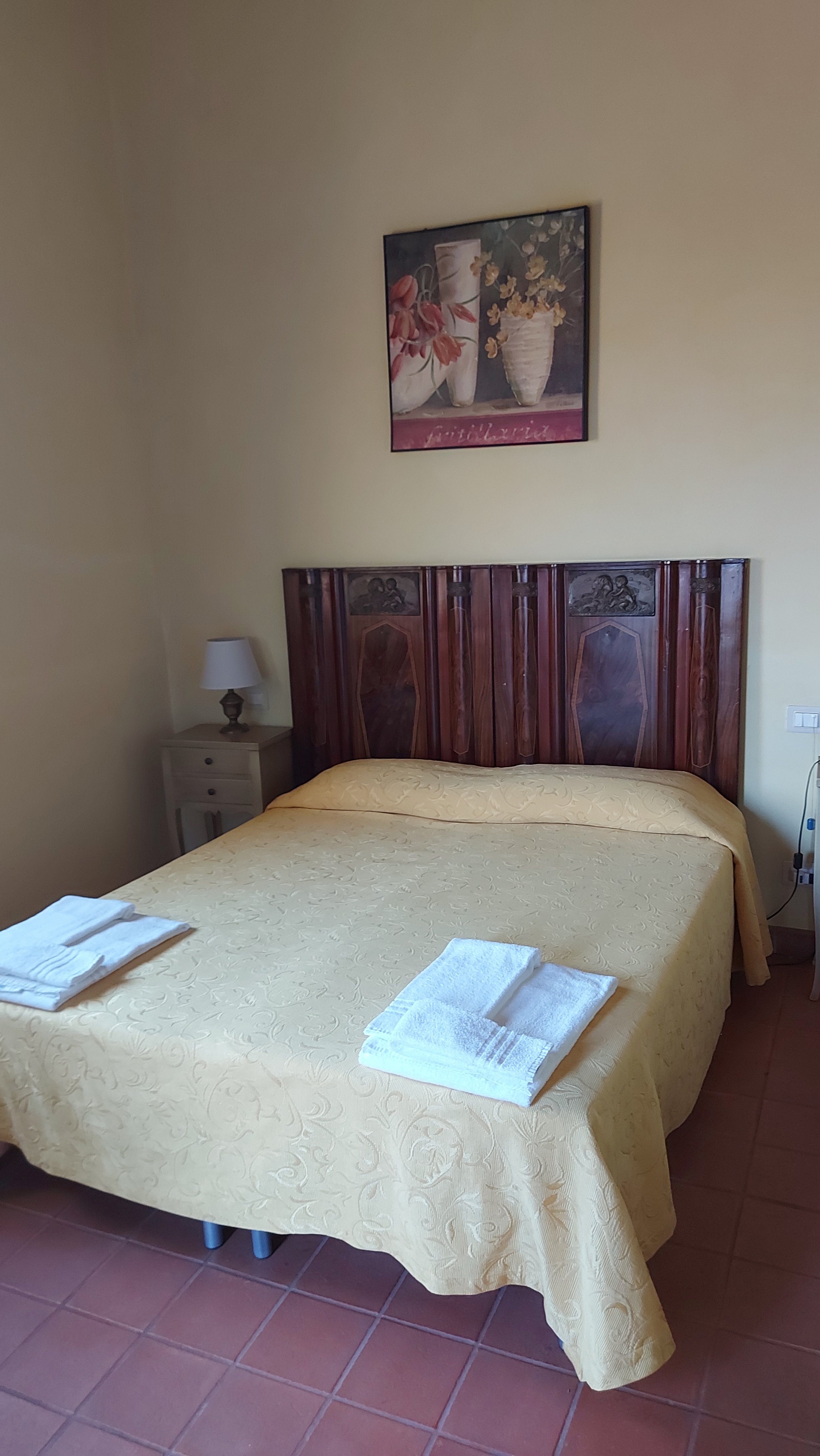What To Expect In Small Town Hotels/B&Bs
/We have stayed in hundreds of hotels and B&Bs in Italy and Ireland. We avoid big hotels, and also chains, which are actually quite rare, opting instead for small, family-run places. They are more affordable, and have a lot more character and charm than the cookie-cutter hotels we were more used to finding in the US. In general, they are immaculately clean.
The types of places we choose for ourselves, and send our clients to, are chosen for their location, or the uniqueness of the lodging itself (e.g. a medieval tower, a lighthouse). We are not personally concerned with things like having high thread count sheets, valet/doorman, elevator, appliances in the rooms (e.g fridge, coffee service). Some places will have all those things, and some will not; those amenities are not as ever-present in small-town places as they might be in the US.
The places we choose, in general, range from €80-€120/night, double occupancy. Some places are more expensive (like a castle or a lighthouse), but most of the hotels/B&Bs are in that range.
Here is a rundown of what you can expect from places we frequent and recommend:
BATHROOMS
Quite frequently, in Italy and in Ireland, you will find these “box" showers, which are plastic and have sliding doors. They are not the most comfortable but they get the job done. It is pretty unusual to find a full tub; most of the buildings in Italy that we refer people to are hundreds of years old, so the plumbing and electricity has been installed in such a way as to preserve the historical integrity of the building. Ireland often has more modern structures, but you will still find smaller-size bathrooms, often also with box showers.
There will almost always be a string cord near the shower or toilet. This is not a light switch! It is an alarm - it’s there for you to pull if you have injured yourself and need assistance.
Italian bathrooms will almost always have a toilet and a bidet. Next to the bidet you will find a hand-towel size towel meant for exclusive use with the bidet. Sometimes the hotel will offer special "intimate cleanser".
BREAKFAST
B&B Breakfasts in Italy:
In small family places, don’t look for the eggs, waffles, bacon, and cinnamon buns that you would find at a typical US B&B or hotel. Italians typically eat very little at breakfast - a caffe, a cornetto, and a cigarette. :) For visitors they’ll often have a larger spread on offer - yogurt, some meats and cheeses, breads and cakes, in addition to coffee and juice. Some places have wonderful breakfasts, but that is not the typical standard. We usually skip most of that (other than the coffee, of course!) because we’ve had a colossal and fantastic meal the night before - and we’ve probably planned an epic and beautiful lunch somewhere fantastic, as well.
B&B Breakfasts in Ireland:
In contrast, the “Full Irish” breakfast (sometimes called a “Full Fry”) is the stuff of legend: Eggs your way, sausage and ham and/or bacon, a grilled tomato, sometimes mushrooms and/or potatoes, baked beans (in Northern Ireland) or black and white pudding (in southwest Ireland - basically just a specialty kind of sausage), in addition to generous amounts of Irish brown bread and butter. Some places will include options like smoked salmon or other local specialties.
The full breakfast is sometimes included in the price of the lodging; more often in recent times, you’ll see that there's an extra charge - but it may well be worth the price: After a hearty Full Irish, you’ll have little need for a lunch beyond a little nosh and a pint.
LINENS/TOWELS
In Ireland, most beds will come with a fluffy covered duvet, but no top sheet. The duvet cover is washed after each guests’ use.
In Ireland and Italy, you will likely not find washcloths. We have read on several blogs that Americans find this disturbing, so if you NEED a washcloth, bring it…..but we’re not quite sure what you would do with that soggy washcloth when you check out in the morning… :)
In Italy, you will usually find beds have a bottom and a top sheet, plus a blanket. In the very northern regions of Italy they will use duvets instead, like they do in Ireland (and Germany).
Most hotels will have hot towel drying racks, that come on when the hot water is activated. Put your wet towel on the hot drying rack and it will be dry (and warm) in an hour or two. You can also use these hot drying racks to dry your hand-washed clothing, for those of you that prefer to pack light and handwash a few items. In general, hotels in Europe are more environmentally conscious than American hotels, so they will want you to re-use towels if you are there for more than one night, and to consider the environment when using hot water and linens (meaning, don’t use more than you need).
AMENITIES
Most places will have soap and shampoo samples. More frequently these days we are finding mini fridges in the rooms, which is a nice addition. Nearly every place will have a hairdryer. Most places will have a TV but may be limited to italian channels only (no Netflix, or HBO, for example). In Ireland you are quite likely to find a tea service available, either in your room or in a common room. In Italy, that is not frequently found. We always travel with a few choice teabags in our suitcase, just in case we find a tea service, because it’s a nice thing to indulge in before you go to sleep; but you can’t count on it being there even if advertised. You will almost always find glasses or plastic cups, but if you need to open a bottle of wine you should probably bring a travel corkscrew (the kind TSA will let you take on the plane). Most rooms will not have a phone, because most places are not staffed 24/7, so there is no constant front desk staff or room service.
Additionally, elevators are not common in small town hotels and B&Bs. Again, this is often because the buildings are centuries old. If mobility is an issue for you, you should make sure you know if you will have one or two flights of steps to manage. (This is something we do for you if you are our client). For everyone, regardless of mobility, it’s a great incentive to pack light!
WIFI
Big or small, some lodgings in both Italy and Ireland have spotty Wi-fi - either because they are in medieval stone buildings, or they’re in a very remote area, or their service is just down at any given moment. For these reasons, we highly recommend that you are sure you have some alternate means of connectivity - usually this means relying on your mobile data plan. (In fact, we’ve found in recent months that a few lodgings don’t bother to provide or offer wi-fi anymore, since so many people just rely on mobile data for general use.) It’s best not to come to Italy with the kind of business that requires a solid connection. (We know that’s a funny thing for us to say, considering we run an entirely online-based business!)
AIR CONDITIONING/HEATING and LIGHTING
In both countries you will always find heating in the winter, though it may come at an extra charge; this is particularly true for unusual lodgings like castles and lighthouses. In Italy, there are rules about when hotels are permitted to turn the heat and AC on (meaning, it is restricted to certain months). This is particularly true after the war started in Ukraine, as Italy is trying very hard to cut its use of Russian oil and gas.
AC is more commonly found in Italy these days than in the past, but it is still not typical or expected. If they do have it, it will not be set to the arctic blast levels we are accustomed to in the US, it will just be set to be a little cooler and less humid than outside. You will almost never find a fan, as Italians think that moving chilled air causes illness.
Many rooms are now equipped with sensors that only allow you to turn the lights on if you insert your key card into a slot by the door when you enter. This is to save energy; it prevents people from leaving lights and appliances on when they are not in their rooms.
If you are in a more old-fashioned room with lights you manually operate, please be sure to turn them off when you leave! And definitely, DEFINITELY turn off the AC or heating when you leave.
CHECK IN TIMES/STAFF AVAILABILITY
Since so many of the places we love are small family-run operations, organizing a check-in time is important. These places don’t have staff siting around 24-7 - for this reason they want to know when you’ll arrive, within an hour window or so. If the lodging is attached to a restaurant, they likely won’t check you in between 3:00-6:00 PM or so, as that’s their rest time between meal services, so no one will be around.
Keep in mind that there also may not be constant staff on hand during your stay, as well as at check-in. Often the host will check you in, and then you may not see them again until the morning. You’ll want to ask them everything you need to know - e.g., wifi password, nearby sights/restaurants, location of corkscrew/glasses, extra pillows/blankets, and especially breakfast time if applicable - while they’re showing you around the room. If they happen to be around later, all the better - but don’t necessarily expect it.
We love the uniqueness and charm of small town hotels and B&Bs. Each place is different, so each place is more memorable. We hope these tips help you navigate your travels a little more easily.















